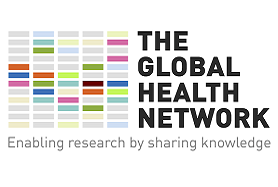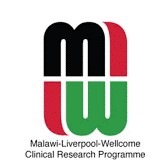World Health Worker Week 2024
Safe and Supported: Invest in Health Workers
This World Health Worker Week, April 1 - 7, 2024, we acknowledge the crucial role that health workers play in providing critical health care, contributing towards resilient health systems, delving into research for improved understanding and treatment, educating community, and achieving global health equity and development goals.
Listen to health workers from Malawi, Nepal, Vietnam and Thailand/Myanmar as they share the joys and challenges of their crucial work as health workers connecting and supporting community and health research.
|
“I enjoy interacting with different study participants and learning about their way of life in order to help with the research”. Emmanuel Harawa, Senior Field Research Assistant |
|
From Mahidol Oxford Tropical Medicine Research Unit (MORU), Thailand “As a health worker, I am most proud of the impact I can have improving the health and wellbeing of people and communities” Nidanuch Tasak, Clinical Research Nurse “Ensuring diverse voices are heard and addressing community concerns effectively is a challenge in my work.” Nattida Toonin, Research Nurse - Public Engagement Team “I am most proud to be part of a team that assists people to understand more about diseases.” Nattika Klahan, Research Nurse, Hospital and community “I really like to learn new things with every new study, it makes me excited, especially new techniques.” Pawanphat Narongchai, Lab technician, Chiangrai Clinical Research Unit (CCRU) |
|
As a volunteer for the community, we don’t receive any payments for what we do but we are rewarded by being able to help the community and connect people with the doctor. Laxmi Thapa Chhetri, Tole (local area) Health Promoter Oxford University Clinical Research Unit (OUCRU) Nepal, Nepal |
|
"I'm particularly proud of my current project, which plays a significant role in the fight against tuberculosis, not just in Vietnam, but globally. […] This project, hopefully, will assist Vietnam and global medicine in eradicating tuberculosis on a global scale." Dr Phan Triệu Phú, Research Coordinator Tuberculosis Group, OUCRU Vietnam |
Thank you to all who shared their stories this World Health Care Worker Week.
And special thanks to The Global Health Network as a host

Key messages for World Health Worker Week 2024
Led by the Frontline Health Workers Coalition and partners, World Health Care Worker Week calls for country leaders to invest in, protect, and support the health workforce—especially women health workers.
The World Health Worker Week (WHWW) brings together advocates, health workers, leaders, and communities around the world to call for greater funding and faster implementation of commitments made to protect and support health workers.
The Covid-19 pandemic highlighted the critical role of health workers across all areas of health provision including: medical treatment, surgery and critical care, rehabilitation, community health education and engagement, access to medications, access to key prevention resources, maternity care, childhood immunization, contact tracing and testing, isolation and quarantine services, and more. The impact of the pandemic on the health sector has been enormous, and it is essential to recognize the critical contributions of health workers.
This year there is an increasing call for investment in ensuring health workers are well trained, well compensated and protected. #SafeSupportedHealthWorkers
Key messages:
- Investing in Safe Supported Health Workers has the potential to save millions of lives.
- Increased investment in Safe Supported Health Workers is crucial for achieving SDG3 (Ensure healthy lives and promote well-being for all at all ages).
- Safe Supported Health Workers are the backbone of high-performing and resilient health systems, making them an essential investment for achieving global health and development goals.
- We need increased and more targeted advocacy to ensure every community has access to Safe Supported Health Workers to provide access to primary health care and to prevent the spread of emerging health threats.
- Many health professionals are not working in a Safe and Supported working environment, and don’t receive the respect and appropriate working environments they need, leading to a lack of skills development and demotivation. This contributes to inequitable access to high-quality health care.
Read more on the homepage of World Health Worker Week here.
Support the community
Thank you for visiting The Global Health Network, please take a moment to read this important message. As you know, our aim is to enable equity in access to research knowledge and this is successfully delivering support and training to 1000’s of research teams all over the world. But we need your support!. If you have benefited from this research skills and knowledge sharing facility, please help us sustain this remarkable and unique provision of information for those who could otherwise not access such support and training. We would be really grateful if you could make a donation or ask your employer or organisation to contribute to the costs of maintaining this platform and the generation of new contents for all users. Just a small contribution from everyone who can afford to pay would keep this available for those who cannot. Thank you, we really appreciate your part in this community effort to better equity in global health research.


